[Anchor]
Today (Jan. 18), we will learn more about the warrant review with our legal reporter.
Reporter Lee Jae-hee, welcome.
Today's hearing was also unprecedented in constitutional history.
Could the fact that the defendant is the sitting president be a variable?
[Reporter]
It is true that security has been heightened when going to and from the court.
However, in the courtroom, he will go through the same procedures as any other defendant.
In fact, during today's warrant hearing, President Yoon was referred to uniformly as the defendant.
However, due to the seriousness of the charges of insurrection against a sitting president, the court's deliberation may take even longer.
[Anchor]
Judge Cha Eun-kyung presided over the warrant hearing, but she is not a dedicated warrant judge; she is the judge on duty today, right?
[Reporter]
Yes, since the review was held on a Saturday, Judge Cha Eun-kyung, who is the weekend duty judge, took charge of the review.
The dedicated warrant judges at the Seoul Western District Court are Lee Soon-hyung and Shin Han-mi.
Since both of them have previously issued arrest and search warrants for President Yoon, there is an analysis that Judge Cha was assigned to avoid unnecessary controversy.
Judge Cha is known for rejecting the detention review of Jeong Jin-sang, an aide to Representative Lee Jae-myung, and for acquitting former prosecutor general Ahn Tae-geun in a retrial related to allegations of retaliatory personnel actions.
[Anchor]
As we saw in the earlier report, if the warrant is dismissed, we should consider that the investigation into President Yoon will effectively come to a halt, right?
[Reporter]
Yes, if President Yoon returns to the presidential residence, he will not comply with the investigation agency's summons, and this investigation may end incompletely without properly investigating the suspect of insurrection.
The variable is the special investigation.
If the special investigation bill is passed and the special prosecutor is quickly appointed, all ongoing related investigations will be transferred to the special prosecutor.
It usually takes about a month to prepare for the appointment of the special prosecutor and the formation of the investigation team, during which the Corruption Investigation Office for High-ranking Officials may still hold the case.
[Anchor]
If the warrant is issued, the conditions for the investigation will improve, but can President Yoon continue to refuse to be investigated?
[Reporter]
He will go through the formal procedure for entering the detention center.
However, since President Yoon has stated that he will not cooperate with the investigation by the Corruption Investigation Office for High-ranking Officials, it is expected that he will refuse to be investigated even after detention.
The Corruption Investigation Office for High-ranking Officials is considering measures such as forcibly bringing him to the investigation site or conducting an investigation at the detention center.
[Anchor]
What impact will the detention have on the impeachment trial?
[Reporter]
First of all, the investigation related to President Yoon's emergency martial law declaration and the Constitutional Court's impeachment trial are separate matters.
The investigation into the charges of insurrection is conducted under criminal law, while the impeachment trial is conducted under the Constitutional Court Act and the Constitution.
However, there is an analysis in the legal community that the outcome of this warrant review will inevitably affect the Constitutional Court's proceedings.
This is because it will provide the court's initial judgment on the illegality and seriousness of the emergency martial law declaration.
The Constitutional Court, which must consider the degree of violation of the Constitution regarding the emergency martial law declaration, cannot simply ignore today's outcome.
Starting from the third hearing of the impeachment trial scheduled for the 21st, the National Assembly's impeachment prosecution team and President Yoon's side are expected to engage in fierce disputes over the results of today's review.
[Anchor]
Yes, thank you, Reporter Lee Jae-hee.
Today (Jan. 18), we will learn more about the warrant review with our legal reporter.
Reporter Lee Jae-hee, welcome.
Today's hearing was also unprecedented in constitutional history.
Could the fact that the defendant is the sitting president be a variable?
[Reporter]
It is true that security has been heightened when going to and from the court.
However, in the courtroom, he will go through the same procedures as any other defendant.
In fact, during today's warrant hearing, President Yoon was referred to uniformly as the defendant.
However, due to the seriousness of the charges of insurrection against a sitting president, the court's deliberation may take even longer.
[Anchor]
Judge Cha Eun-kyung presided over the warrant hearing, but she is not a dedicated warrant judge; she is the judge on duty today, right?
[Reporter]
Yes, since the review was held on a Saturday, Judge Cha Eun-kyung, who is the weekend duty judge, took charge of the review.
The dedicated warrant judges at the Seoul Western District Court are Lee Soon-hyung and Shin Han-mi.
Since both of them have previously issued arrest and search warrants for President Yoon, there is an analysis that Judge Cha was assigned to avoid unnecessary controversy.
Judge Cha is known for rejecting the detention review of Jeong Jin-sang, an aide to Representative Lee Jae-myung, and for acquitting former prosecutor general Ahn Tae-geun in a retrial related to allegations of retaliatory personnel actions.
[Anchor]
As we saw in the earlier report, if the warrant is dismissed, we should consider that the investigation into President Yoon will effectively come to a halt, right?
[Reporter]
Yes, if President Yoon returns to the presidential residence, he will not comply with the investigation agency's summons, and this investigation may end incompletely without properly investigating the suspect of insurrection.
The variable is the special investigation.
If the special investigation bill is passed and the special prosecutor is quickly appointed, all ongoing related investigations will be transferred to the special prosecutor.
It usually takes about a month to prepare for the appointment of the special prosecutor and the formation of the investigation team, during which the Corruption Investigation Office for High-ranking Officials may still hold the case.
[Anchor]
If the warrant is issued, the conditions for the investigation will improve, but can President Yoon continue to refuse to be investigated?
[Reporter]
He will go through the formal procedure for entering the detention center.
However, since President Yoon has stated that he will not cooperate with the investigation by the Corruption Investigation Office for High-ranking Officials, it is expected that he will refuse to be investigated even after detention.
The Corruption Investigation Office for High-ranking Officials is considering measures such as forcibly bringing him to the investigation site or conducting an investigation at the detention center.
[Anchor]
What impact will the detention have on the impeachment trial?
[Reporter]
First of all, the investigation related to President Yoon's emergency martial law declaration and the Constitutional Court's impeachment trial are separate matters.
The investigation into the charges of insurrection is conducted under criminal law, while the impeachment trial is conducted under the Constitutional Court Act and the Constitution.
However, there is an analysis in the legal community that the outcome of this warrant review will inevitably affect the Constitutional Court's proceedings.
This is because it will provide the court's initial judgment on the illegality and seriousness of the emergency martial law declaration.
The Constitutional Court, which must consider the degree of violation of the Constitution regarding the emergency martial law declaration, cannot simply ignore today's outcome.
Starting from the third hearing of the impeachment trial scheduled for the 21st, the National Assembly's impeachment prosecution team and President Yoon's side are expected to engage in fierce disputes over the results of today's review.
[Anchor]
Yes, thank you, Reporter Lee Jae-hee.
■ 제보하기
▷ 카카오톡 : 'KBS제보' 검색, 채널 추가
▷ 전화 : 02-781-1234, 4444
▷ 이메일 : kbs1234@kbs.co.kr
▷ 유튜브, 네이버, 카카오에서도 KBS뉴스를 구독해주세요!
- Significance of warrant results
-
- 입력 2025-01-18 23:34:33
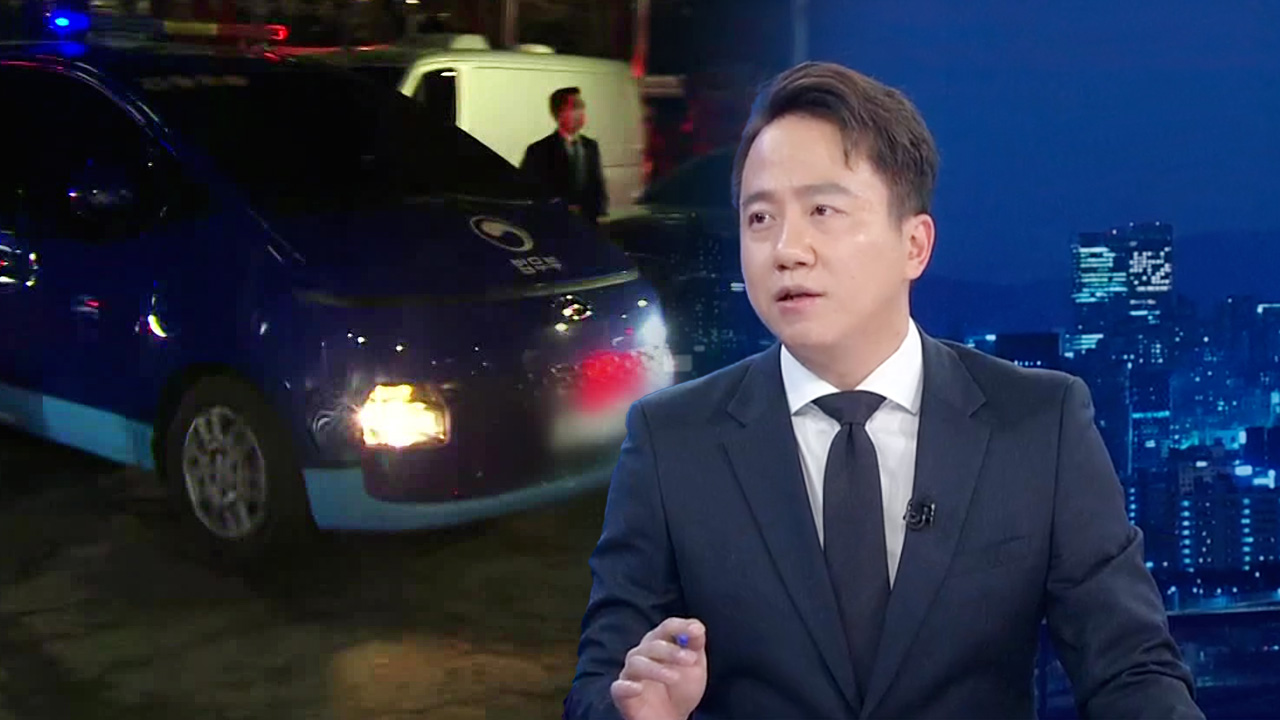
[Anchor]
Today (Jan. 18), we will learn more about the warrant review with our legal reporter.
Reporter Lee Jae-hee, welcome.
Today's hearing was also unprecedented in constitutional history.
Could the fact that the defendant is the sitting president be a variable?
[Reporter]
It is true that security has been heightened when going to and from the court.
However, in the courtroom, he will go through the same procedures as any other defendant.
In fact, during today's warrant hearing, President Yoon was referred to uniformly as the defendant.
However, due to the seriousness of the charges of insurrection against a sitting president, the court's deliberation may take even longer.
[Anchor]
Judge Cha Eun-kyung presided over the warrant hearing, but she is not a dedicated warrant judge; she is the judge on duty today, right?
[Reporter]
Yes, since the review was held on a Saturday, Judge Cha Eun-kyung, who is the weekend duty judge, took charge of the review.
The dedicated warrant judges at the Seoul Western District Court are Lee Soon-hyung and Shin Han-mi.
Since both of them have previously issued arrest and search warrants for President Yoon, there is an analysis that Judge Cha was assigned to avoid unnecessary controversy.
Judge Cha is known for rejecting the detention review of Jeong Jin-sang, an aide to Representative Lee Jae-myung, and for acquitting former prosecutor general Ahn Tae-geun in a retrial related to allegations of retaliatory personnel actions.
[Anchor]
As we saw in the earlier report, if the warrant is dismissed, we should consider that the investigation into President Yoon will effectively come to a halt, right?
[Reporter]
Yes, if President Yoon returns to the presidential residence, he will not comply with the investigation agency's summons, and this investigation may end incompletely without properly investigating the suspect of insurrection.
The variable is the special investigation.
If the special investigation bill is passed and the special prosecutor is quickly appointed, all ongoing related investigations will be transferred to the special prosecutor.
It usually takes about a month to prepare for the appointment of the special prosecutor and the formation of the investigation team, during which the Corruption Investigation Office for High-ranking Officials may still hold the case.
[Anchor]
If the warrant is issued, the conditions for the investigation will improve, but can President Yoon continue to refuse to be investigated?
[Reporter]
He will go through the formal procedure for entering the detention center.
However, since President Yoon has stated that he will not cooperate with the investigation by the Corruption Investigation Office for High-ranking Officials, it is expected that he will refuse to be investigated even after detention.
The Corruption Investigation Office for High-ranking Officials is considering measures such as forcibly bringing him to the investigation site or conducting an investigation at the detention center.
[Anchor]
What impact will the detention have on the impeachment trial?
[Reporter]
First of all, the investigation related to President Yoon's emergency martial law declaration and the Constitutional Court's impeachment trial are separate matters.
The investigation into the charges of insurrection is conducted under criminal law, while the impeachment trial is conducted under the Constitutional Court Act and the Constitution.
However, there is an analysis in the legal community that the outcome of this warrant review will inevitably affect the Constitutional Court's proceedings.
This is because it will provide the court's initial judgment on the illegality and seriousness of the emergency martial law declaration.
The Constitutional Court, which must consider the degree of violation of the Constitution regarding the emergency martial law declaration, cannot simply ignore today's outcome.
Starting from the third hearing of the impeachment trial scheduled for the 21st, the National Assembly's impeachment prosecution team and President Yoon's side are expected to engage in fierce disputes over the results of today's review.
[Anchor]
Yes, thank you, Reporter Lee Jae-hee.
Today (Jan. 18), we will learn more about the warrant review with our legal reporter.
Reporter Lee Jae-hee, welcome.
Today's hearing was also unprecedented in constitutional history.
Could the fact that the defendant is the sitting president be a variable?
[Reporter]
It is true that security has been heightened when going to and from the court.
However, in the courtroom, he will go through the same procedures as any other defendant.
In fact, during today's warrant hearing, President Yoon was referred to uniformly as the defendant.
However, due to the seriousness of the charges of insurrection against a sitting president, the court's deliberation may take even longer.
[Anchor]
Judge Cha Eun-kyung presided over the warrant hearing, but she is not a dedicated warrant judge; she is the judge on duty today, right?
[Reporter]
Yes, since the review was held on a Saturday, Judge Cha Eun-kyung, who is the weekend duty judge, took charge of the review.
The dedicated warrant judges at the Seoul Western District Court are Lee Soon-hyung and Shin Han-mi.
Since both of them have previously issued arrest and search warrants for President Yoon, there is an analysis that Judge Cha was assigned to avoid unnecessary controversy.
Judge Cha is known for rejecting the detention review of Jeong Jin-sang, an aide to Representative Lee Jae-myung, and for acquitting former prosecutor general Ahn Tae-geun in a retrial related to allegations of retaliatory personnel actions.
[Anchor]
As we saw in the earlier report, if the warrant is dismissed, we should consider that the investigation into President Yoon will effectively come to a halt, right?
[Reporter]
Yes, if President Yoon returns to the presidential residence, he will not comply with the investigation agency's summons, and this investigation may end incompletely without properly investigating the suspect of insurrection.
The variable is the special investigation.
If the special investigation bill is passed and the special prosecutor is quickly appointed, all ongoing related investigations will be transferred to the special prosecutor.
It usually takes about a month to prepare for the appointment of the special prosecutor and the formation of the investigation team, during which the Corruption Investigation Office for High-ranking Officials may still hold the case.
[Anchor]
If the warrant is issued, the conditions for the investigation will improve, but can President Yoon continue to refuse to be investigated?
[Reporter]
He will go through the formal procedure for entering the detention center.
However, since President Yoon has stated that he will not cooperate with the investigation by the Corruption Investigation Office for High-ranking Officials, it is expected that he will refuse to be investigated even after detention.
The Corruption Investigation Office for High-ranking Officials is considering measures such as forcibly bringing him to the investigation site or conducting an investigation at the detention center.
[Anchor]
What impact will the detention have on the impeachment trial?
[Reporter]
First of all, the investigation related to President Yoon's emergency martial law declaration and the Constitutional Court's impeachment trial are separate matters.
The investigation into the charges of insurrection is conducted under criminal law, while the impeachment trial is conducted under the Constitutional Court Act and the Constitution.
However, there is an analysis in the legal community that the outcome of this warrant review will inevitably affect the Constitutional Court's proceedings.
This is because it will provide the court's initial judgment on the illegality and seriousness of the emergency martial law declaration.
The Constitutional Court, which must consider the degree of violation of the Constitution regarding the emergency martial law declaration, cannot simply ignore today's outcome.
Starting from the third hearing of the impeachment trial scheduled for the 21st, the National Assembly's impeachment prosecution team and President Yoon's side are expected to engage in fierce disputes over the results of today's review.
[Anchor]
Yes, thank you, Reporter Lee Jae-hee.
-
-
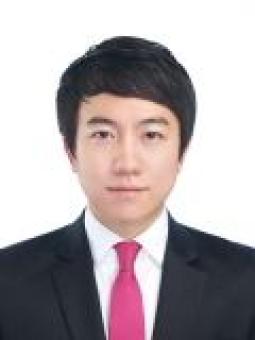
이재희 기자 leej@kbs.co.kr
이재희 기자의 기사 모음
-
이 기사가 좋으셨다면
-
좋아요
0
-
응원해요
0
-
후속 원해요
0










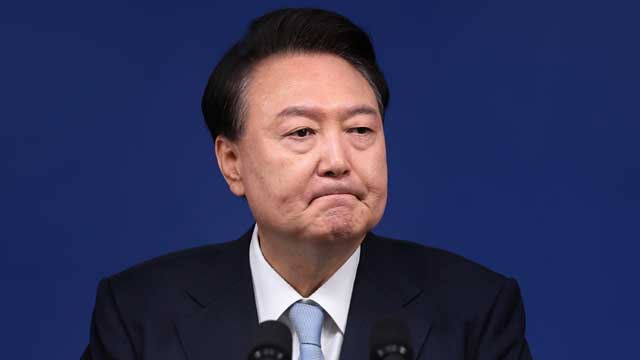
![[속보] 경찰, 서부지법 난동 이틀간 86명 연행…“끝까지 추적”](/data/news/2025/01/19/20250119_zADBDR.jpg)
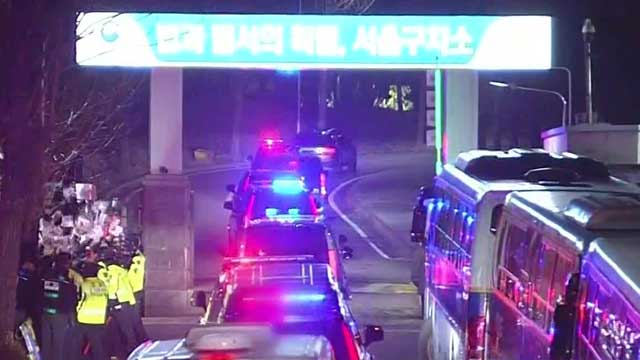
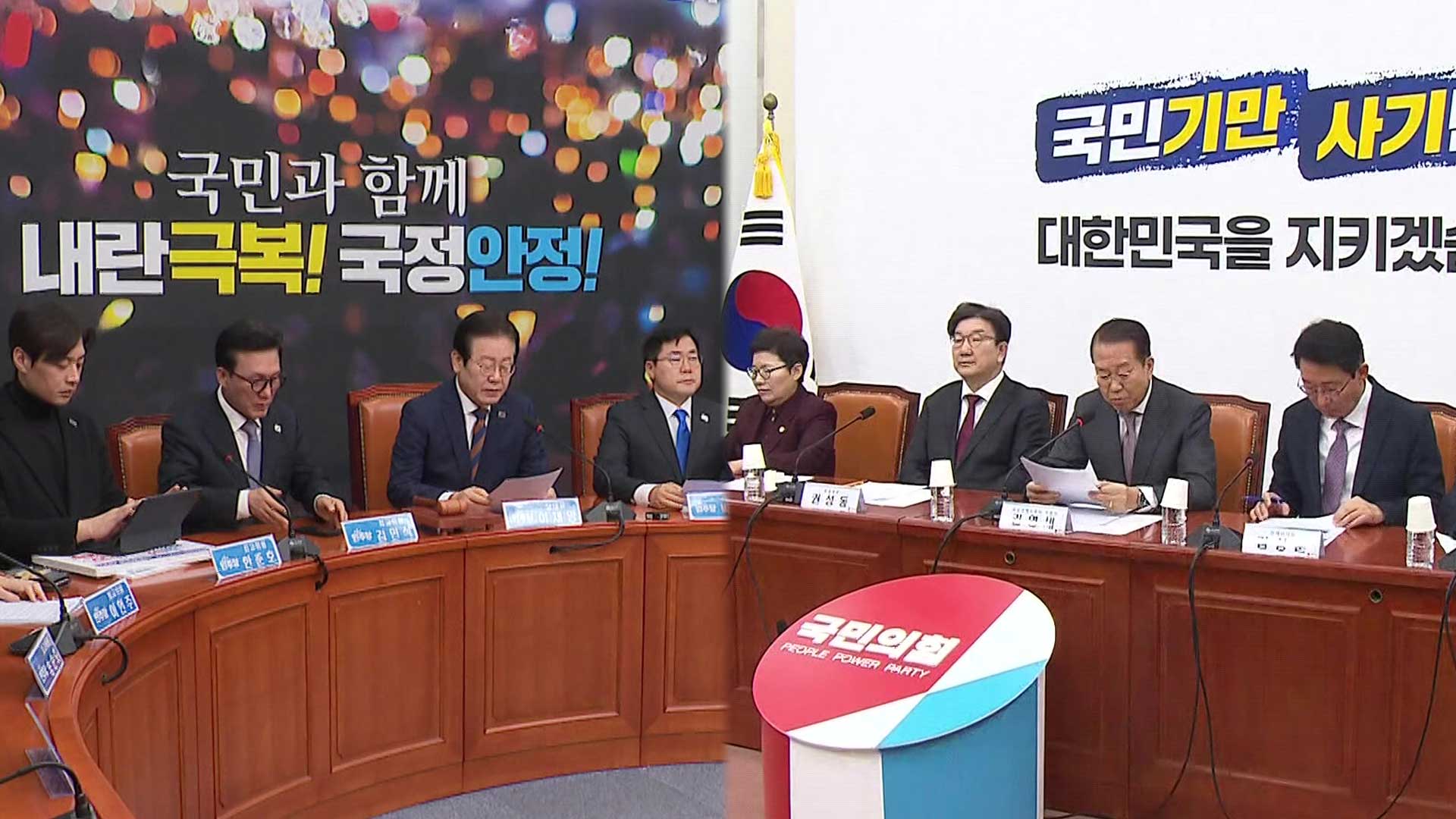

이 기사에 대한 의견을 남겨주세요.